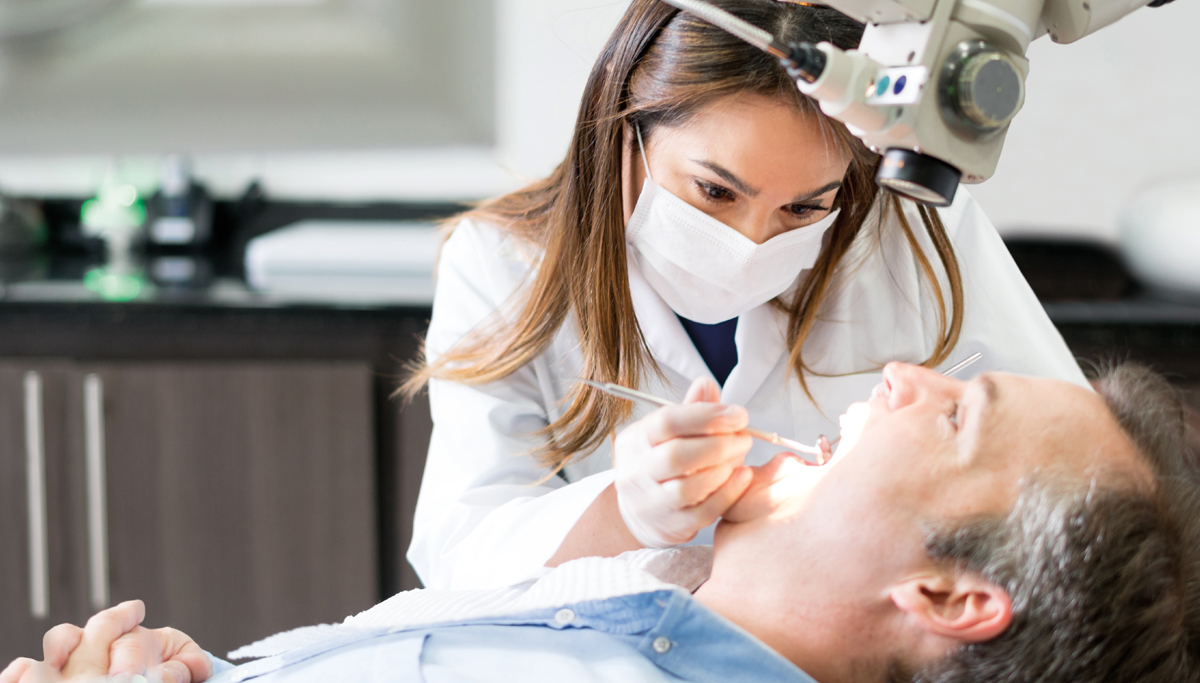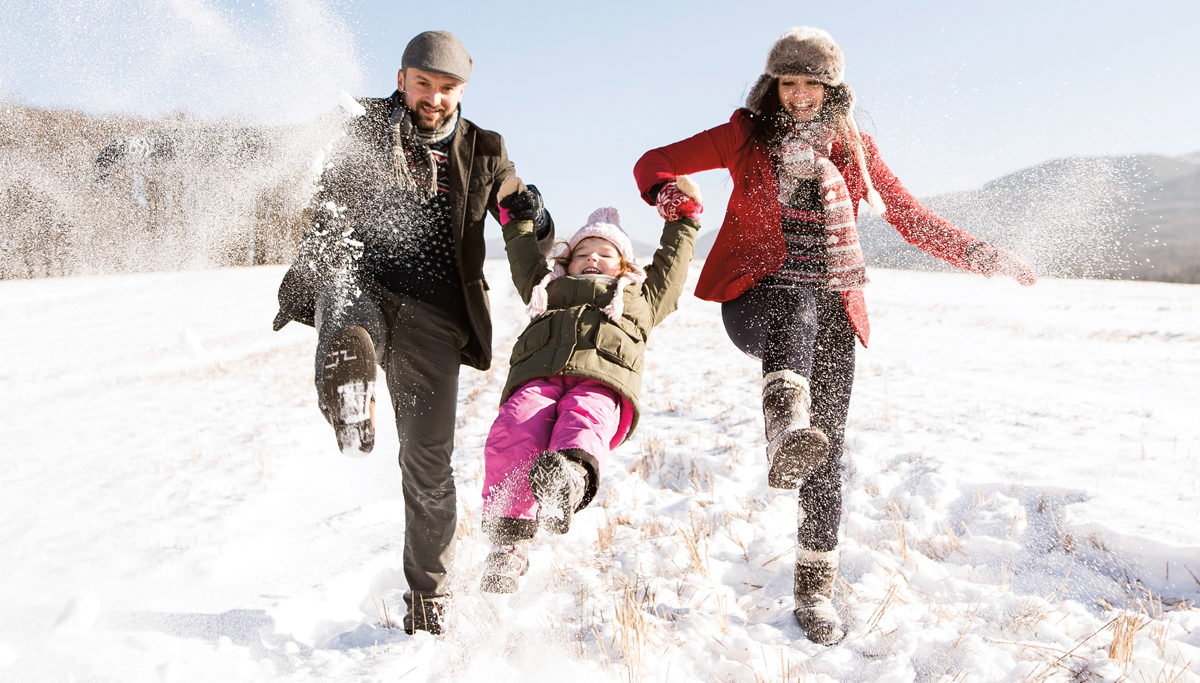The effects of colder temperatures
Help your smile weather the storm
Adapting to winter weather can mean everything from adjusting your thermostat to changing your wardrobe. But do you make adjustments to protect your smile? Keep these factors in mind to maintain your healthy smile during the winter months.
-

As temperatures drop, you may experience increased tooth sensitivity, similar to the pain you can get from cold foods or beverages. Sensitive teeth can be caused by thinning tooth enamel, gum disease, exposed tooth roots, inflamed pulp and teeth grinding or clenching. Tell your dentist if you regularly experience tooth sensitivity. Depending on the cause, treatment recommendations can include a desensitizing toothpaste, sealant, fluoride application, dental filling, gum graft or root canal.
-

Although dry winter air usually doesn’t cause dry mouth, it can increase its severity by pulling moisture from your mouth. Dry mouth can lead to cavities, gum disease and a number of other oral health conditions. If you experience persistent dry mouth, talk to your dentist, who may suggest a saliva substitute or other remedy.
-

The lack of humidity during cold, dry winter days can also lead to chapped lips. Fortunately, you can usually find relief by regularly using lip balm. A lip balm that is SPF 30 or higher can also protect lips from sun damage when you go outside. Make sure to use it even on a cloudy winter day! Look for SPF lip balms with moisturizers like vitamin E, glycerin and shea butter for maximum effectiveness. Avoid lip balms with cooling ingredients such as menthol, camphor or phenol, as they can dry or irritate your lips. Keeping hydrated by drinking water throughout the day and using a humidifier can also help prevent chapped lips.
Most of the time, chapped lips are irritating but harmless. However, they can occasionally be the symptom of a medical condition. If chapping or cracking at the corners of the mouth persists or becomes too uncomfortable, tell your dentist or physician.
Seasonal affective disorder
During dark, cold winter days, some people’s mood shifts, making them feel depressed or anxious. If winter blues stick around for more than a few days, it could be a sign of seasonal affective disorder (SAD).
It’s believed SAD can be sparked by the body responding to lack of sunlight, feelings of claustrophobia or “cabin fever,” and more difficult breathing conditions in cold air. People who already have a mental health condition are at higher risk for SAD.
SAD can have an effect on more than a person's mood. People with any type of anxiety or depression are at a higher risk for oral problems, including gum disease and tooth decay. Depression and anxiety symptoms, including those from SAD, can also cause cravings for sugary and high carb foods that could lead to cavities.
If you experience SAD, talk to your physician. In the meantime:
-

Exercise to help boost your mood.
-

Get sunlight when you can. Purchasing an indoor therapy lamp may also help alleviate symptoms.
-

Eat a balanced diet that’s good for your oral and overall health.
-

Keep up with your oral health, even if you don’t feel like brushing twice a day and flossing daily.
About 10 million Americans experience seasonal depression — 80% of them are female.1 Free support for SAD and other mental health issues are available here.
Stressful driving
In many areas of the U.S., drivers face freezing rain, icy conditions and even hazardous whiteouts from heavy snow. As a result, nearly 70% of drivers in the Midwest and Northeast are stressed out by wet, wintery weather. Stress can lead to an increase in oral health issues, including teeth grinding and clenching, chipped or cracked teeth and jaw pain.
You can reduce stress by staying home if you don’t need to travel. However, if you do drive in less-than-ideal weather:
-

Make sure your headlights, brake lights, tires, brakes, windshield wipers, heater and defroster are in good working order.
-

Slow down, give yourself extra time to arrive and leave plenty of distance between cars.
-

Don’t get distracted by your phone, radio or passengers.
-

Pack an emergency kit with boots, gloves, blankets, jumper cables and a flashlight.
Need a little stress relief? Kick back and relax with one of our delicious mouth-friendly winter drinks.








